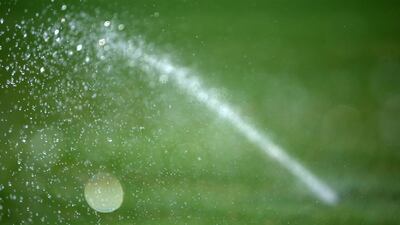This is an arid country and that it is essential to conserve our most precious resource: water. Water security is one of the most pressing problems of this century – and not just in this country. While the educational focus has rightly been put on promoting the virtue of conserving water, it also appropriate to stress the vice of wasting it.
Latest figures from the Federal Electricity and Water Authority (Fewa) show that the average resident consumes 550 litres of water a day, compared to the international level of 170to 300 litres. Environment advocate Dr Sheikh Abdulaziz Al Nuaimi, known as the "Green Sheikh", told an audience in Abu Dhabi this week that we seem to take water for granted and many of us do not actively think of ways to cut our daily usage.
Recent official efforts to cut current levels of public consumption have included a tariff increase on water prices for expatriates in Abu Dhabi and a new requirement for Emiratis to pay for water. While the cost of desalinating drinking water far exceeds the amount paid by consumers, these efforts have helped raise awareness about the issue. But the big question is: how often do we, as a society, condemn the act of wasting water?
Wastage is not only economically unwise and ultimately unsustainable: during times of shortage, it would be inappropriate even if we had an abundance of water. This, as the Green Sheikh pointed out during his talk, is an essential part of our heritage and religion, which teaches us about the vice of wasting our resources.
Small changes to our daily habits can make a big difference to overall water consumption. It should affect our everyday activities, from brushing our teeth, to washing our hands, cars and dishes; from cooking to taking a shower and filling our drinking glasses. Education must begin early at home and in schools and extend to community-wide campaigns. Authorities might also decide to gradually reduce the subsidies on water, edging the consumer price closer to the price of production and distribution. Paying the market price would help to enforce the idea that waste is never acceptable. Every member in the community has a part to play in spreading this message.

